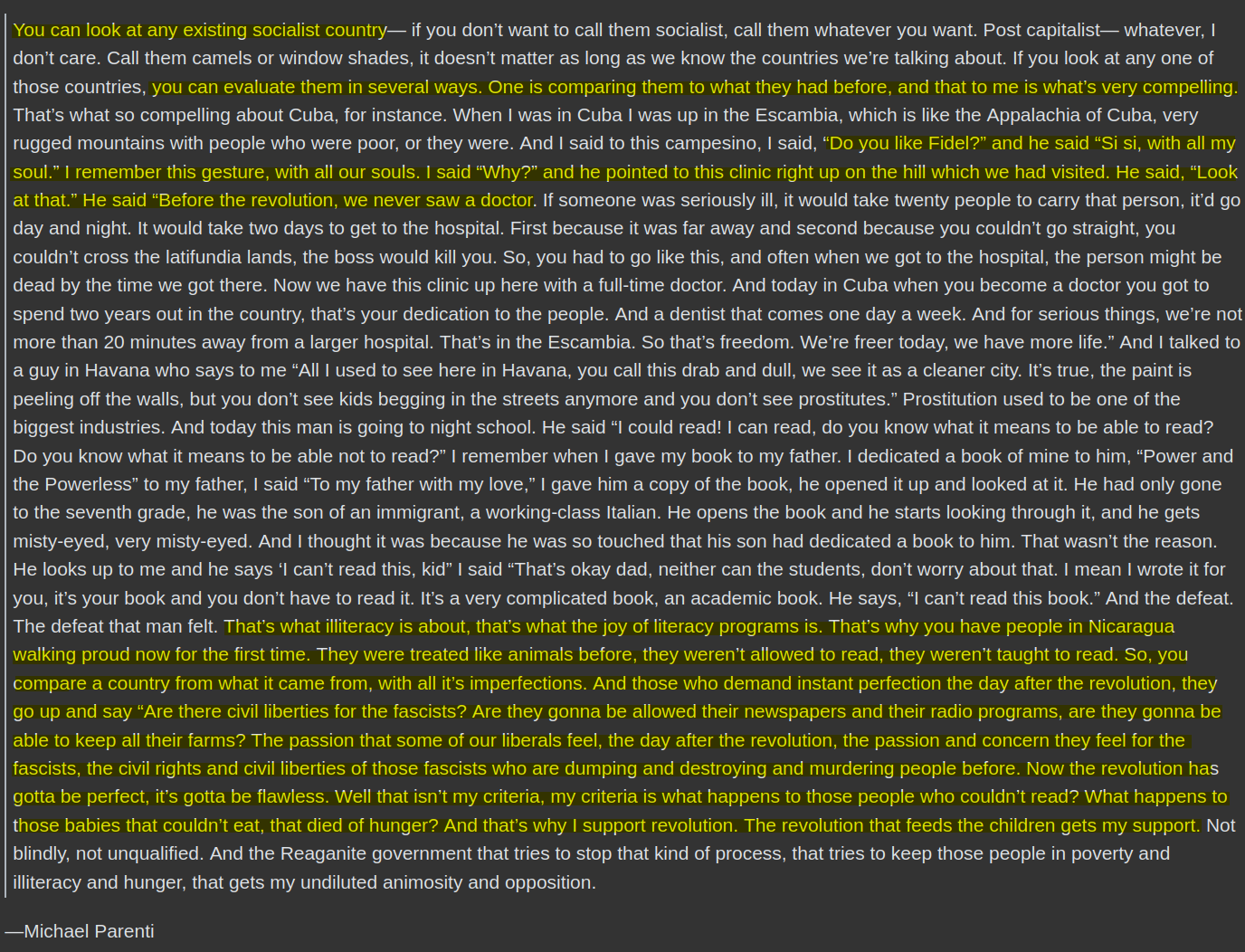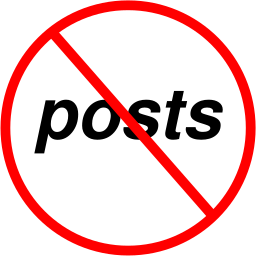I found this podcast from this  post:
post:
I subbed today for a 7th and 8th grade teacher. I’m not exaggerating when I say at least 50% of the students were at a 2nd grade reading level. The students were to spend the class time filling out an “all about me” worksheet, what’s your name, favorite color, favorite food etc. I was asked 20 times today “what is this word?”. Movie. Excited. Trait. “How do I spell race car driver?”
I’ve only listened to one episode so far, but it’s really well produced, seems well-researched and very well put together.
From what I gather so far, the ways that the American public school system “teaches” kids how to read is not only completely wrong, but actually saddles them bad habits which fundamentally hinder their reading comprehension.
A huge swath of American adults are functionally illiterate, and I think I’m starting to understand why.
“…at all. The more one read, the more one was subject to indoctrination, which is something which of course I experienced myself. This is the reason why achieving “literacy” is always the first aim of communist regimes. Elementary.”
that’s the chaser that lets you know it’s not a bit and therefore even funnier in a twisted way
Thanks for the recommendation–will definitely be checking this out.
edit: I just listened to the first episode and WTF, the people responsible for getting this new curriculum into schools should be in prison. It’s a crime of unfathomable proportions against children who have no way to defend themselves.
A lot of people are commenting about how, so what, lots of people can read and are also stupid. Except this isn’t about being stupid. Or dumb. Reading and writing is a skill you gotta be tutored into. You won’t learn it through intuition. You won’t learn it through osmosis, guesswork or because the Holy Ghost descended from the heavens to enlighten your soul. You have to be taught, step by step, how to decode writing in order to then develop it into other skills, like different levels of reading, making annotations, making summaries, prose writing, and so on. All of these things should ideally become second nature to you through a long process of ‘scholarization’, one that is formulated with full understanding of what kids of different ages tend to need, and what kids in particular may require of their teachers.
Think about it. This isn’t like zoomers being unable to use Windows because they have phones. It’s like not having a school system in the first place. Good god, the districts that keep this scam pedagogy in place are gonna create a lost generation.
also illiteracy is a humiliating thing to admit to in our society and it isn’t rich kids not being taught to read. mocking illiteracy is classism
You won’t learn it through intuition.
You don’t? I taught myself how to read. How would you call that?
i would call that “I taught myself how to lie”.
Depends. If we mean “without a personal teacher” sure, but no one is looking at a book of a language the don’t know and just suddenly learning it.
you’ve used the word taught, which implies reasoning. which is by definition not intuitive. reading was never innate to you or anyone else.
How did you do it? What resources did you have, and how old were you?
I mean even “educated” PhDs who “read a lot” are still stupid as fuck and cannot for the life of them realize that they are being swayed by propaganda so I think the problem goes way deeper than just basic reading comprehension

Actually now that I think about it, solving reading comprehension is a lot easier of a task than trying to un-brainwash these dumb “well-read Politics and Prose” liberals who drive around with NPR stickers on the back of their cars and laptops…
stupid as fuck and cannot for the life of them realize that they are being swayed by propaganda
These doesn’t have anything to do with being ‘stupid’. It’s a matter of choosing theoretical frameworks for navigating the word. I don’t see any non-arbitrary reason for choosing a framework that writes-off most of common discourse as propaganda, even if that’s the path I chose based on the contingencies of my own life.
I think adult illiteracy is pretty high in the U.S. as well. I have had multiple middle managers who cannot write a coherent paragraph to save their lives, to the degree that I have had to go literally ask them what they mean because otherwise it would be reading tea leaves.
Even worse is people who are lifer manual laborers, they can be very smart and great with their hands, but ask them to read something above very basic text and their eyes just glaze over. Something has gone seriously wrong here.

Insert Parenti Cuban literacy quote here
this one?
You can look at any existing socialist country— if you don’t want to call them socialist, call them whatever you want. Post capitalist— whatever, I don’t care. Call them camels or window shades, it doesn’t matter as long as we know the countries we’re talking about. If you look at any one of those countries, you can evaluate them in several ways. One is comparing them to what they had before, and that to me is what’s very compelling. That’s what so compelling about Cuba, for instance. When I was in Cuba I was up in the Escambia, which is like the Appalachia of Cuba, very rugged mountains with people who were poor, or they were. And I said to this campesino, I said, “Do you like Fidel?” and he said “Si si, with all my soul.” I remember this gesture, with all our souls. I said “Why?” and he pointed to this clinic right up on the hill which we had visited. He said, “Look at that.” He said “Before the revolution, we never saw a doctor. If someone was seriously ill, it would take twenty people to carry that person, it’d go day and night. It would take two days to get to the hospital. First because it was far away and second because you couldn’t go straight, you couldn’t cross the latifundia lands, the boss would kill you. So, you had to go like this, and often when we got to the hospital, the person might be dead by the time we got there. Now we have this clinic up here with a full-time doctor. And today in Cuba when you become a doctor you got to spend two years out in the country, that’s your dedication to the people. And a dentist that comes one day a week. And for serious things, we’re not more than 20 minutes away from a larger hospital. That’s in the Escambia. So that’s freedom. We’re freer today, we have more life.” And I talked to a guy in Havana who says to me “All I used to see here in Havana, you call this drab and dull, we see it as a cleaner city. It’s true, the paint is peeling off the walls, but you don’t see kids begging in the streets anymore and you don’t see prostitutes.” Prostitution used to be one of the biggest industries. And today this man is going to night school. He said “I could read! I can read, do you know what it means to be able to read? Do you know what it means to be able not to read?” I remember when I gave my book to my father. I dedicated a book of mine to him, “Power and the Powerless” to my father, I said “To my father with my love,” I gave him a copy of the book, he opened it up and looked at it. He had only gone to the seventh grade, he was the son of an immigrant, a working-class Italian. He opens the book and he starts looking through it, and he gets misty-eyed, very misty-eyed. And I thought it was because he was so touched that his son had dedicated a book to him. That wasn’t the reason. He looks up to me and he says ‘I can’t read this, kid” I said “That’s okay dad, neither can the students, don’t worry about that. I mean I wrote it for you, it’s your book and you don’t have to read it. It’s a very complicated book, an academic book. He says, “I can’t read this book.” And the defeat. The defeat that man felt. That’s what illiteracy is about, that’s what the joy of literacy programs is. That’s why you have people in Nicaragua walking proud now for the first time. They were treated like animals before, they weren’t allowed to read, they weren’t taught to read. So, you compare a country from what it came from, with all it’s imperfections. And those who demand instant perfection the day after the revolution, they go up and say “Are there civil liberties for the fascists? Are they gonna be allowed their newspapers and their radio programs, are they gonna be able to keep all their farms? The passion that some of our liberals feel, the day after the revolution, the passion and concern they feel for the fascists, the civil rights and civil liberties of those fascists who are dumping and destroying and murdering people before. Now the revolution has gotta be perfect, it’s gotta be flawless. Well that isn’t my criteria, my criteria is what happens to those people who couldn’t read? What happens to those babies that couldn’t eat, that died of hunger? And that’s why I support revolution. The revolution that feeds the children gets my support. Not blindly, not unqualified. And the Reaganite government that tries to stop that kind of process, that tries to keep those people in poverty and illiteracy and hunger, that gets my undiluted animosity and opposition.
—Michael Parenti
saved this as an image for ez redeployment

leftist meme
I think part of the problem is that being read to by your parents at a young age and having books in the home that you are encouraged to read does so much for literacy l, as much if not more than what kids are taught in school. And most parents don’t have the time or the inclination, or they themselves are barely literate and have no basis for teaching their kids to be literate. And the cycle continues
I think part of the problem is that being read to by your parents at a young age and having books in the home that you are encouraged to read does so much for literacy
That probably helps on some level, but from listening to the first two episodes of the podcast, the problem seems to be that a lot of kids are being taught a fundamentally incorrect method of how to decode written language that’s making it much harder for them to read that it otherwise should be, and often leaves them completely unable to parse new words. Like, if you gave them a word they’d never seen written down before (especially if the word is by itself, devoid of any context), they wouldn’t know how to pronounce it, even if they’ve heard the word spoken before.
So simply having books available won’t actually help (most of) them, because they just don’t have the skills necessary to figure out how to decode written language, or how to connect written language to spoken language. They need to be taught the correct way of reading first.
(Of course, once kids finally have an understanding of the fundamentals of how to decode written language, having tons of books available to read so that they can further practice those skills would definitely be a massive help for improving literacy.)
I haven’t listened to the podcast but English as the language theyre learning has gotta add a whole other level of difficulty. Like Spanish you know the vowel sounds are all the same, Norwegian updates their spelling so that it always matches the actual pronunciation, Korean literally puts how to say the word symbolically in each part of a character, Japanese hiragana and katakana is always the same, Cree syllabics are one-to-one (although it was designed that way intentionally), the only other ones that’d be hard is like Chinese or Japanese Kanji and stuff like that but those usually have a pronounciation hint character/radicle in their as well.
English is like that but with wildly different rules on top of bad pedagogy, yikes.
Despite English’s weird spellings and exceptions, there aren’t that many different sounds and there is a very effective way to teach how those sounds correlate to written words. It’s just that no one used that method for like 30 years because it was “too old fashioned”.













